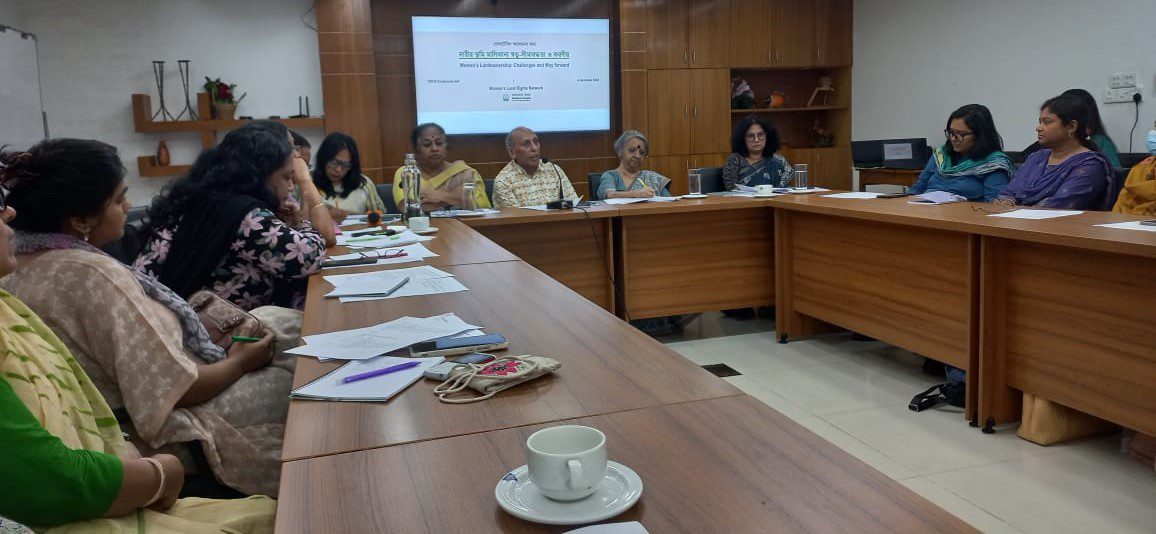A roundtable discussion titled “Women’s Land Rights—Challenges and Way Forward” took place on November 4, 2024, at YWCA, Dhaka. The purpose of the roundtable is to discuss barriers to women’s land ownership and to identify actionable solutions. The session was attended by 48 participants, including 33 women and 15 men, representing diverse groups such as human rights activists, development professionals, media representatives, and marginalized women advocating for land rights. Key speakers included renowned human rights activist Kushi Kabir, she is also Coordinator of Nijera Kori, who served as the Chief Guest; Nasimun Ara Haq Minu, President of Bangladesh Nari Sangbadik Kendra; Shamsul Huda, Executive Director, ALRD (Association for Land Reform and Development), Dr. Ishani Chakraborty, Professor of History at Dhaka University; Rawshan Jahan Moni, Deputy Executive Director, ALRD (Association for Land Reform and Development) as special guest. The discussion had been brought extensive experience and insight into the discourse, addressing systemic barriers and exploring pathways to empower women through secure land ownership. Participant who are working closely with community and have experiences of land conflict called for the implementation of constitutional provisions to protect women’s inheritance rights to prevent exploitation and gender-based violence. They highlighted the societal and legal challenges women face, such as discrimination rooted in religious laws and male-dominated land distribution practices. Khushi Kabir demanded introduction of uniform family code and advocated for including marginalized groups, such as LBT, indigenous and dalit, in land rights movements, broadening the scope of gender inclusivity.
Participants, including grassroots women leaders, shared their struggles and experiences. For example, Mehnaz from Bonnishikha raised concerns about the lack of marriage registration among Hindu communities, which affects women’s claims to property. Sulekha Mrong, a leader from the Garo community, highlighted that although their matrilineal traditions provide women with land rights, difficulties emerge when men try to challenge these customs. Journalists like Farhana Tithi and development workers like Kohinoor Rizvi also highlighted systemic barriers such as the high costs of land partition and the exclusion of women farmers from government agriculture benefits.





